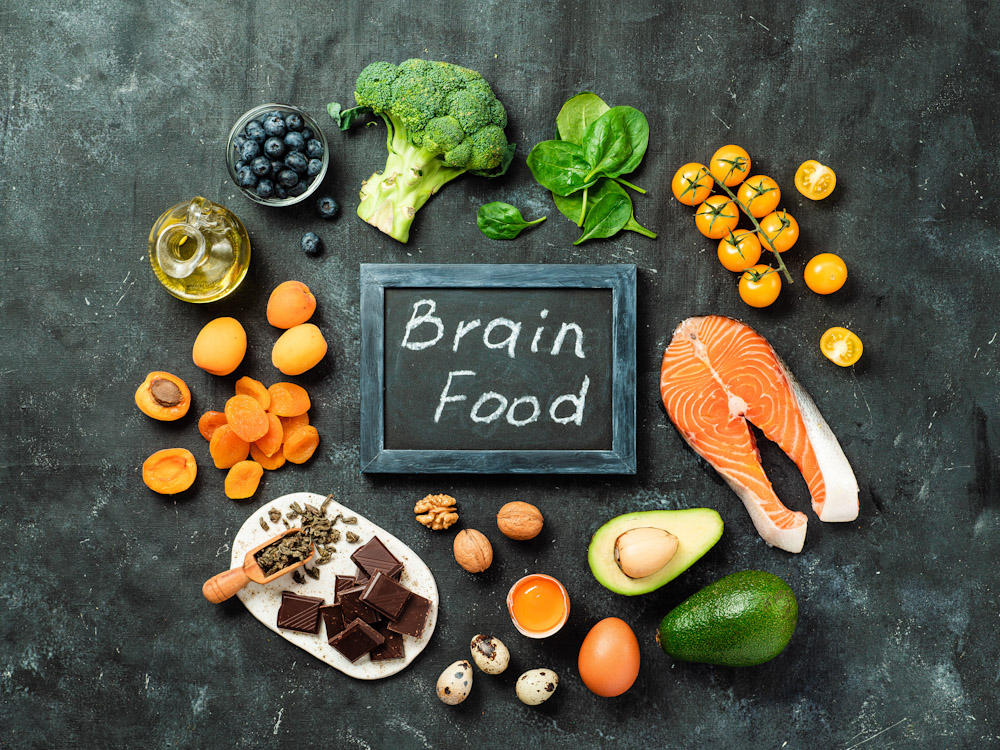It’s no question that food is a fundamental part of our individual lives. Not only is food a physiological need that perpetuates our survival, but it is also an important part of every culture and microculture around the world. Food’s large global impact has much to do with its effect on our brains and the chemistry that occurs after each bite we take. Knowing more about our brain’s response to food can go a long way in helping us form better habits for healthier minds and bodies.
Why Do We Enjoy Food?
Despite how it is generally regarded, food is essentially a collection of molecular compounds that initiate complex chemical processes throughout our entire bodies. These reactions occur in our muscles, in our blood, in our brains— everywhere. What we eat affects how we think, how we sleep, how we move, and ultimately, how long we live. Food’s vital role in fueling our complex biological machinery should never play second fiddle to the enjoyment and sociality it inspires. Although the latter two are important, the primary purpose of food will always be to keep us alive and healthy.
Many people may be asking themselves:
If food is meant as fuel, why do I have to enjoy it so much?
Well, the enjoyment we get out of food is important. Life would be much more boring if food couldn’t be savored. We would also likely be less motivated to eat which would create its own set of health concerns.
When our stomachs are empty and in need of food, the pleasure receptors in our brains are primed and ready to fire. You may notice that the first few bites of food you take on an empty stomach are particularly satisfying while later consumption is less savory. This is because of chemistry within our brains. When needed fuel is introduced into our bodies, we are rewarded, in a sense, with feelings of satisfaction.
Now, there are times when a desire for this sense of satisfaction confuses us into thinking that we need fuel when in reality, our tanks are not empty. This is very common, especially in the society we live in today. If this is a struggle, it is important to begin developing a structured eating routine to help prevent overeating. These impulses can be controlled and a strategized meal prep plan or nutrition schedule can be a tremendous help.
Overeating Affects Our Mental Health
Although eating our favorite comfort foods is a welcomed treat on occasion, doing so frequently actually lures us into a false sense of happiness. While we may feel pleasure with the first couple of bites, poor eating habits throughout the day cause our brains and other organs to work less efficiently and, with time, can have a considerable impact on how we view ourselves and our choices. How we come to view ourselves can lead to eating disorders.
Eating disorders are a type of mental illness that affects nearly 30 million Americans— nearly 10 percent of our country’s population. According to the ANAD, over a quarter of those who experience eating disorders attempt suicide. This statistic outlines a problem that Total Health and Fitness strives to solve. Being more disciplined in our diets, though difficult at times, will lead us to happier, more fulfilling lives. This past year as we experienced the effects of a worldwide pandemic, it became unduly difficult for many to maintain that discipline. That’s okay, you can always start today, getting back on the right track. You will see improvements in both your physical and mental health. For more information on our structured nutrition plans, call us at (801)-905-8158 for a consultation.
Keep Those Seratonin Levels Steady
To explain why poor eating habits may lead to eating disorders and other mental health concerns, we have to understand a very key substance within our bodies called serotonin. Serotonin is a chemical produced by nerve cells in our bodies that requires an essential amino acid called tryptophan. This amino acid is found in many of the foods we eat such as oats, nuts, seeds, meat, and dairy. Serotonin, located in our digestive systems, helps our bodies with the following and more:
- Mood regulation
- Focus
- Wound healing
- Sleep
- Bone health
Studies show that serotonin levels have a large bearing on our mental health and help to reduce both depression and anxiety. Because one of serotonin’s primary constituents, tryptophan, comes from the food we eat, our eating habits ultimately have an impact on our mental health, sleeping patterns, and focus. This is not a myth, it’s science.
Although enjoyment can come from eating some of our favorite comfort foods—a great thing on occasion—you’re actually much more likely to find yourself in good spirits when eating healthily. A proper diet will help to regulate your brain chemistry as well as your serotonin levels, thus, promoting stable long-term physical and mental health. At Total Health and Fitness, we understand that lasting happiness stems from good nutrition. We create custom meal plans and encourage the formation of lasting habits that keep you happy and healthy.








